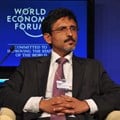The Steel and Engineering Industries Federation of Southern Africa (SEIFSA) is urging Minister of Trade, Industry and Competition Ebrahim Patel to think long-term when deciding on scrap metal regulations. The federation is adamant that the previous export ban didn’t stop infrastructure damage or scrap metal theft, and it hurt the economy. Alternatives to the ban are being considered, such as an industry pledge to combat illegal scrap metal movement.

The minister of Trade, Industry and Competition is readying his decision on a scrap metal ban. Source: x.com
The industry says it is ready to work with policymakers on a sustainable policy, but it needs consistent demand for steel through large public projects. Without this, the steel sector faces decline. The industry is open to finding solutions, but the chosen policy must consider all industry segments to avoid tension.
In retrospect, the scrap metal export ban has been ineffective in preventing infrastructure damage and scrap metal theft. The ban has caused more economic harm than good, contributing to ArcelorMittal South Africa’s (AMSA) announcement of a potential closure of its long-products business.
The ban sent a negative economic signal, using blunt industrial policy tools to combat crime, leading to a host of unintended consequences.
The expiration of the scrap metal export ban on 15 December 2023 and the extension of the public consultation period to 12 January 2024 have highlighted the viability of alternatives to an export ban. One such alternative is the development of an industry pledge, co-created by the DTIC and the industry, to work together to combat the movement of illegitimate scrap metal.
Full commitment from industry
This would involve phasing out cash transactions in the scrap metal industry, rigorous inspection of scrap metal origins, and a zero-tolerance approach to purchases of scrap metal from unidentified sources or suspected stolen public infrastructure. The industry remains committed to signing such a pledge, underpinned by these principles.
Both upstream and downstream segments have pledged to work alongside the DTIC and the broader government to develop a sustainable industrial policy framework that promotes industry growth. However, a prerequisite for the successful development of this framework is ensuring demand for steel and related products through consistent, large-scale public projects.
To date, this has been a significant constraint to the economic benefits of the steel sector, resulting in production contraction and a structural decline in employment.
Industry representatives say that they are willing to stay engaged and collaborate with policymakers to find sustainable solutions to the complex challenges facing the industry. However, the policy path chosen must be holistic and avoid inadvertently creating tensions between different industry segments.













































